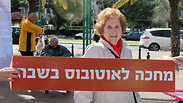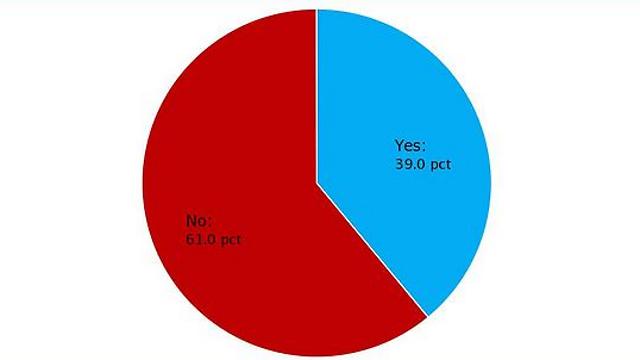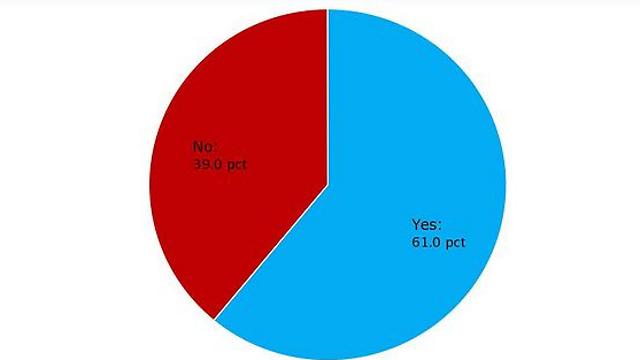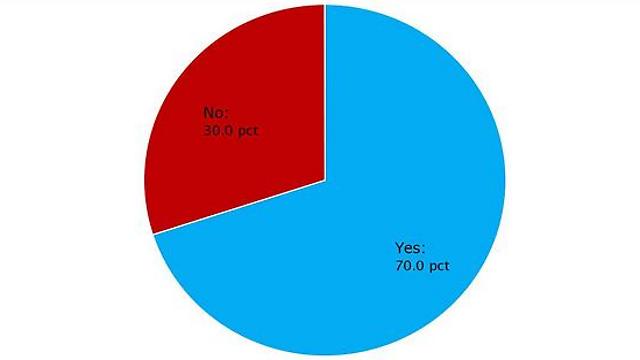
Majority of Israelis support religion-state separation
On eve of Jewish New Year, Hiddush association's Religion and State Index shows 72% of public supports opening businesses on Shabbat, 35% believes yeshiva students should be drafted.
The majority of the Israeli public is in favor of separating religion from the state, and 70 percent of Israelis support public transportation on Shabbat in a wide or limited scope, the annual Israel Religion and State Index published on the eve of the Jewish New Year revealed.
The Hiddush association's Religion and State Index, a comprehensive annual research published in cooperation with Ynet for the sixth time – shows that 61 percent of the Israeli public think that the bill for equal share of the burden will not achieve its objective – an opinion shared by 98 percent of the ultra-Orthodox Jews, 78 percent of the religious population, 58 percent of conservative Jews and 53 percent of the secular public. Only 39 percent believe the bill will force ultra-Orthodox Jews to enlist in the army.
61% don't believe Haredi Jews will be drafted

The opinion poll revealed that Operation Protective Edge did not affect the positions of 55 percent of the public regarding the enlistment of yeshiva students. In contrast, 34 percent of the public asserts that they should be drafted and 11 percent of the survey's respondents are convinced they should not serve in the army.
68%:Torah studies don't protect Israel
Sixty-eight percent said they disagree with claims made by ultra-Orthodox officials during the Gaza operation that yeshiva students provide protection to the nation by studying Torah and reciting prayers. In contrast, 97 percent of haredim and 73 percent of the religious community were in agreement with the Haredi officials.
61%: Seperate religion and State
As for religion-state separation in Israel, 61 percent are in favor of seeing religious matters separated in the state, and 84 percent believe Israel must guarantee all citizens freedom of religion.
72%: Open businesses on Shabbat
Addressing businesses open on Shabbat, 72 percent of respondents were supportive of the opening of shopping centers outside of residential areas, and 53 percent were in favor of allowing small markets and convenience stores to remain open in Tel Aviv without restriction. In contrast, 18 percent prefer a limited scope of operations and only in certain areas of the city, while 29 percent were against allowing the stores to remain open on Shabbat at all.
Forty-five percent of Israelis support limited public transportation on Shabbat, while 25 percent are in favor of fully-operational public transportation on Saturday, as is customary during the rest of the days of the week. Eighteen percent support preserving the status quo and 12 percent oppose running buses on Shabbat.
The Religion and State Index was conducted by the Smith Institute among 800 respondents - a representative sample of Israel's adult Jewish population (maximum sampling error: 3.5 percent).
Hiddush CEO Attorney Rabbi Uri Regev said in response to the findings: "The rise in support for various fields of freedom of religion illustrates all the more the unbearable gap between the public's firm stand and the Israeli government's policies for decades, including the current government."
Regev added that "unfortunately, the freedom of religion and equality in sharing the burden is compromised by political parties and politicians who think they can continue to ignore the public's desires and promises they made to voters." Regev concluded by saying, "this must stop".












